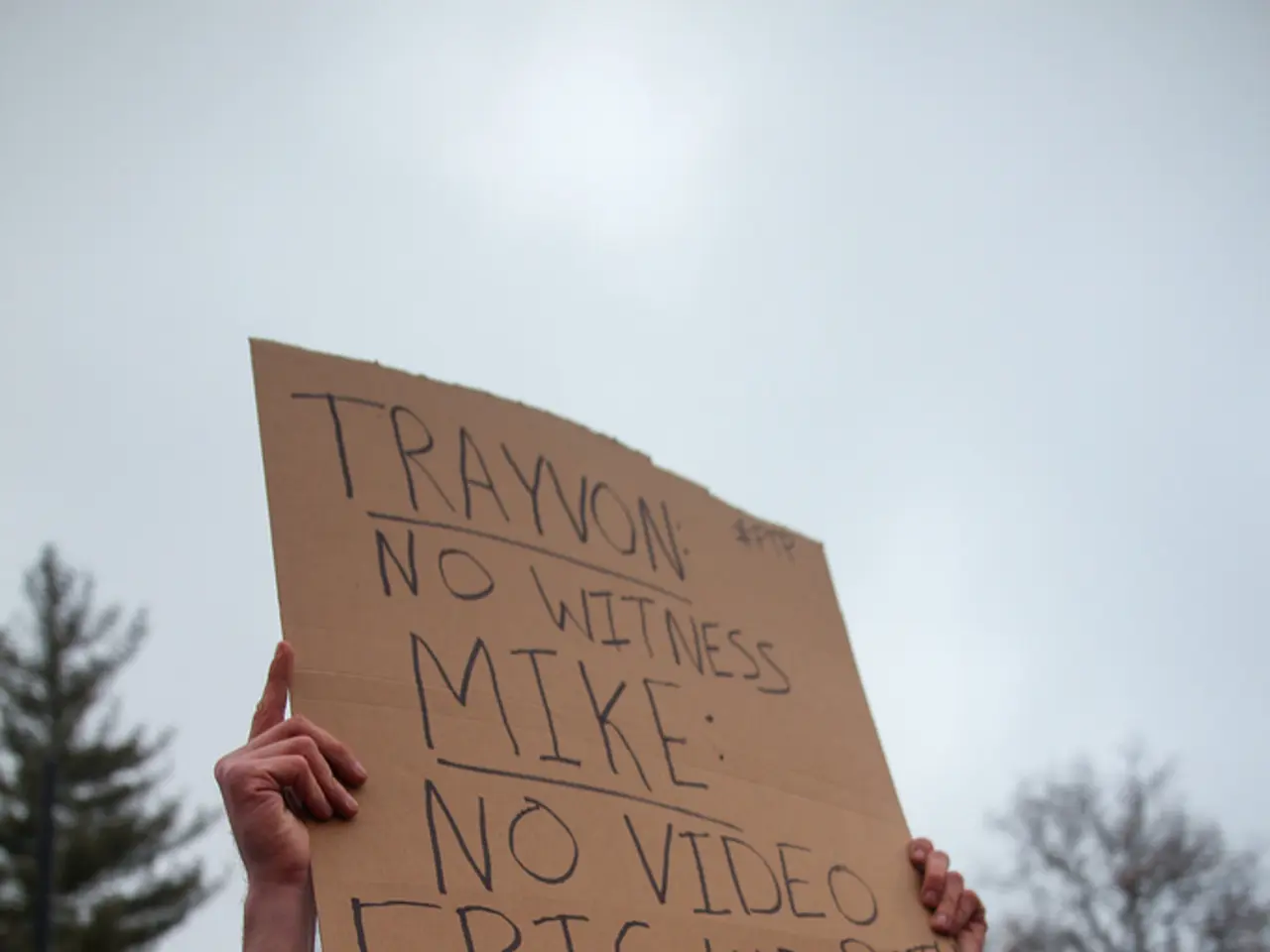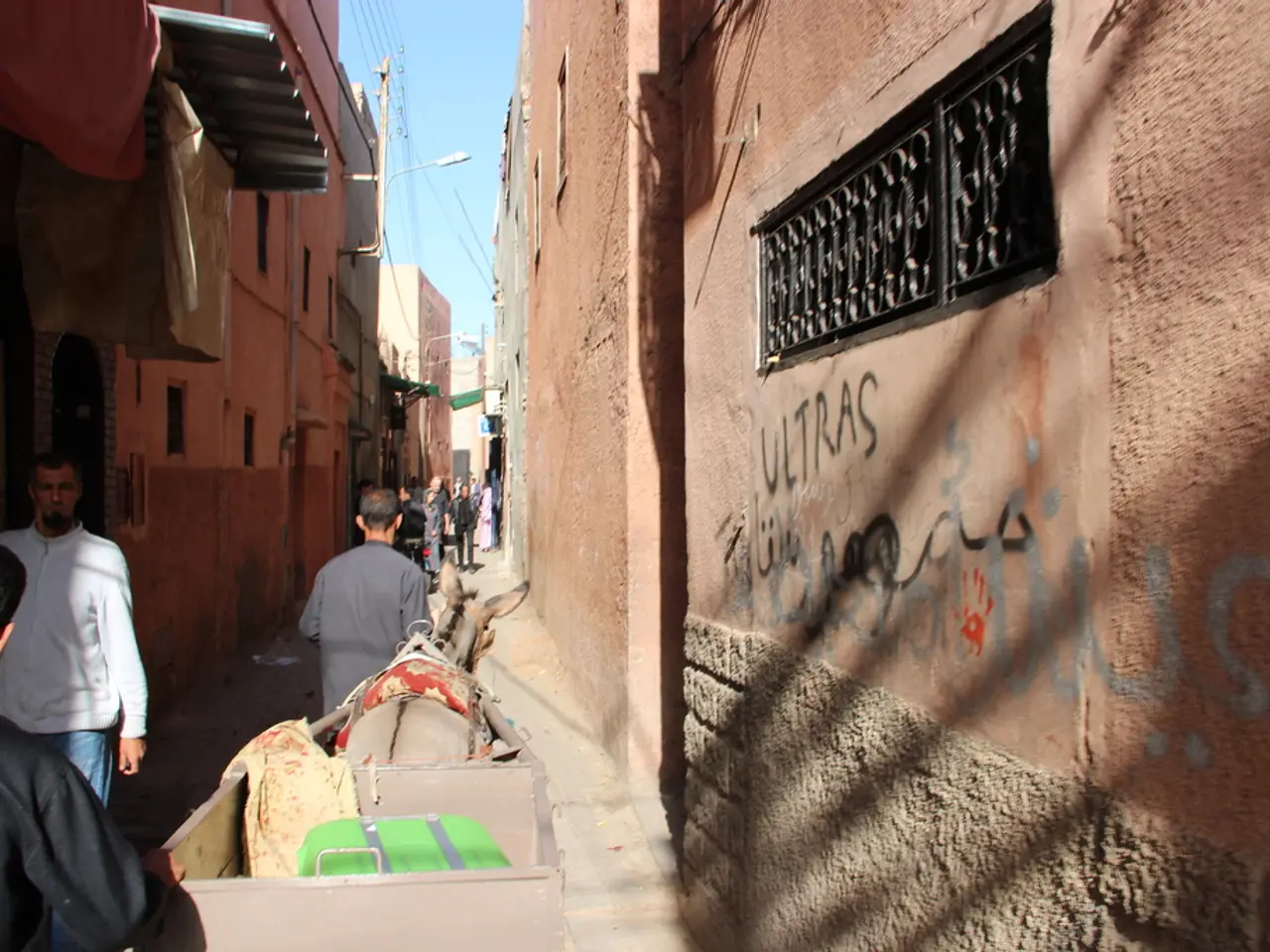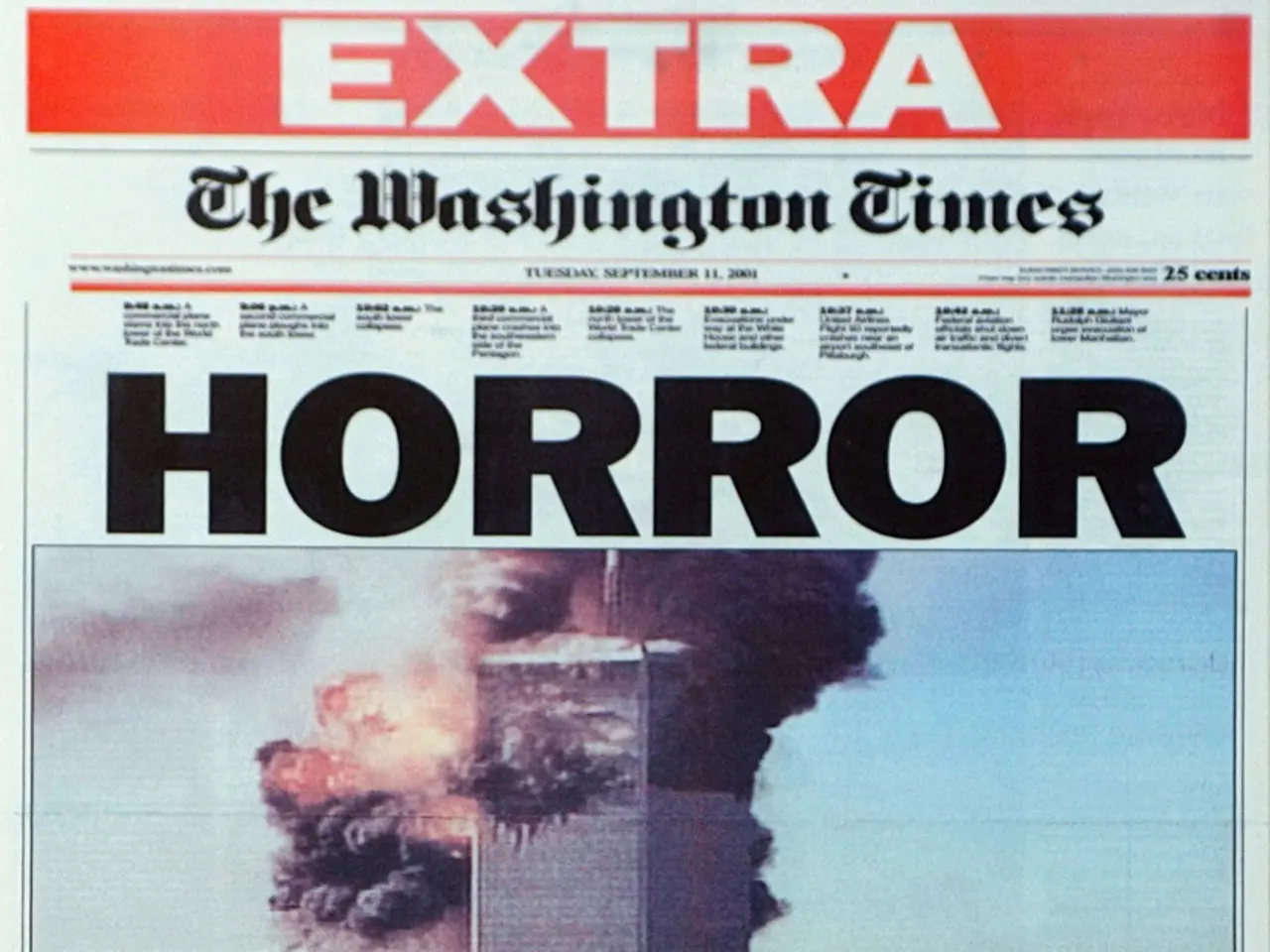Insignificant value.
In the tumultuous landscape of the Gaza war, an open letter signed by over 367 celebrities has been making waves across Germany. Among the initial signatories were Jella Haase, Daniel Brühl, Joko Winterscheidt, and more recent additions such as Nina Chuba, Clueso, Sandra Hüller, and the popular band Fontaines D.C.
The open letter, orchestrated by the global NGO Avaaz, calls for an immediate halt to German arms exports to Israel, the suspension of the association agreement between the EU and Israel, and an immediate ceasefire with unhindered access for humanitarian aid. However, it does not directly address Friedrich Merz but is aimed at the celebrities' followers, seeking consensus instead of unrest.
Open letters, such as this one, serve as influential tools for raising public awareness and promoting civic engagement. They have been shown to drive significant civic engagement, as demonstrated by Taylor Swift’s voter endorsement that led to 400,000 voter registrations. In the Gaza context, open letters by hundreds of actors, filmmakers, and Nobel laureates have brought widespread attention to alleged atrocities and called for political action.
However, their direct impact on political decisions and humanitarian aid is often limited and debated. Despite these efforts, such public letters alone have not decisively moved political leaders. For instance, a broad celebrity-backed Democratic campaign with star endorsements failed to prevent Kamala Harris’s defeat, illustrating that celebrity influence is not always determinative in elections or policy.
The function of open letters lies more in strengthening one's own moral authority than in influencing the addressees. An open letter, such as the one regarding the Gaza war, is a closed system where a response from the addressees is not provided, and it becomes a kind of moral newsletter with the list of signatories as the message.
Collective campaigns, like the Creative Community for Peace’s letter condemning the Hamas massacre and their #Releasethehostages campaign, have leveraged large social media audiences to galvanize support and maintain public pressure. This collective approach boosts visibility and can aid humanitarian goals like hostage negotiation, but measurable political decisions stemming directly from these are harder to attribute.
Celebrity statements can attract backlash or criticism for perceived one-sidedness or silence, as seen with Juliette Binoche’s reluctance and subsequent signing that drew public reaction. This highlights how celebrity involvement shapes but also complicates public debate.
In sum, open letters by celebrities in the Gaza war context function as influential tools for awareness and advocacy but are only one part of a complex political and humanitarian landscape. Their effectiveness depends on broader political will, media environment, and public engagement levels, rather than celebrity signatures alone. A recent Forsa survey indicates that three quarters of Germans wish for "more pressure from the federal government on Israel," suggesting a receptive audience for the open letter's call to action.
- Despite the open letter regarding the Gaza war gathering support from numerous celebrities, its impact on political decisions and direct aid might be limited, as demonstrated by the failed Democratic campaign with star endorsements.
- In a complex political and humanitarian landscape, open letters from celebrities, such as the one in the Gaza war context, serve as influential tools for raising public awareness and advocacy, but their effectiveness depends on broader political will, media environment, and public engagement levels, rather than celebrity signatures alone.








